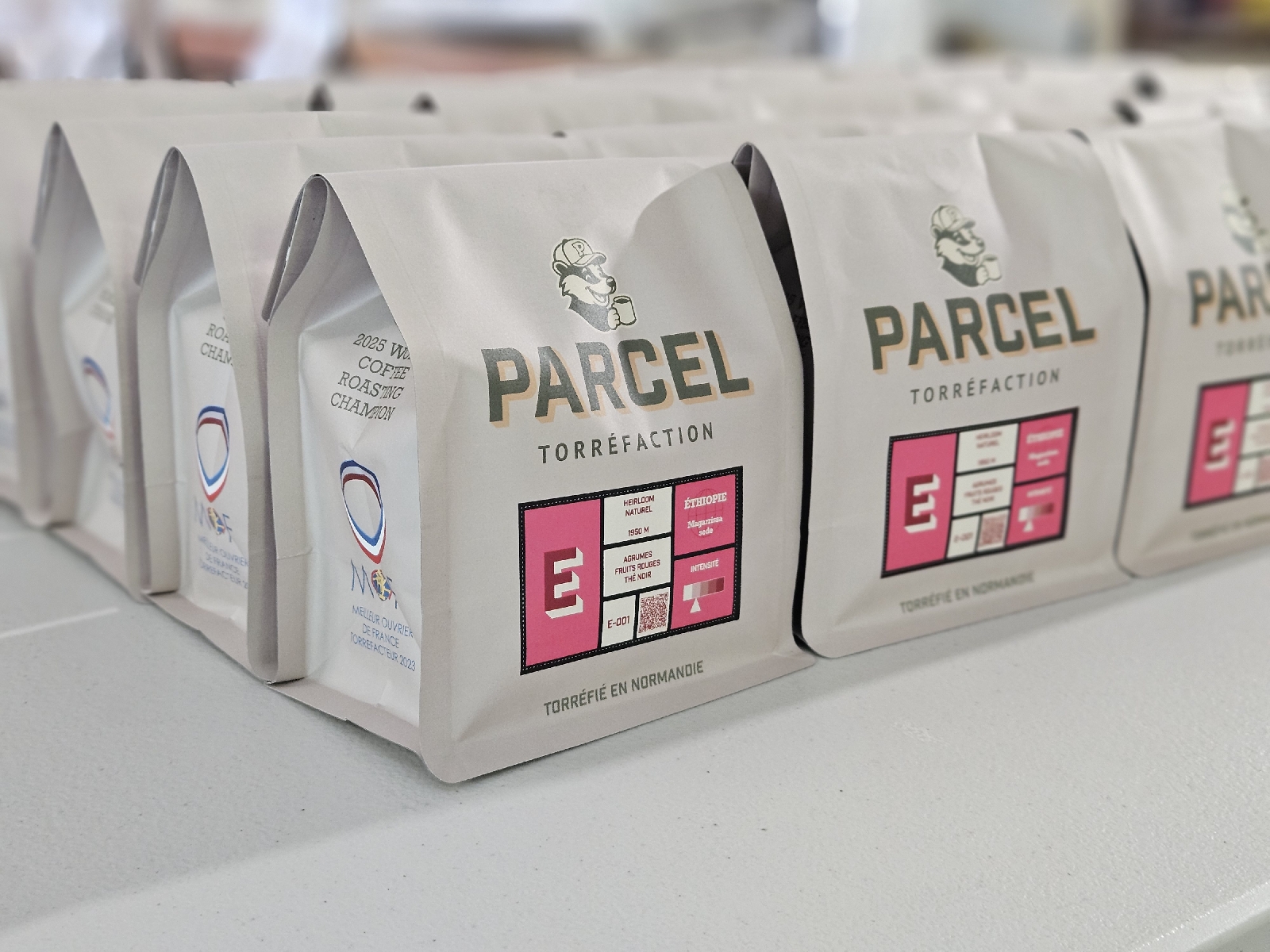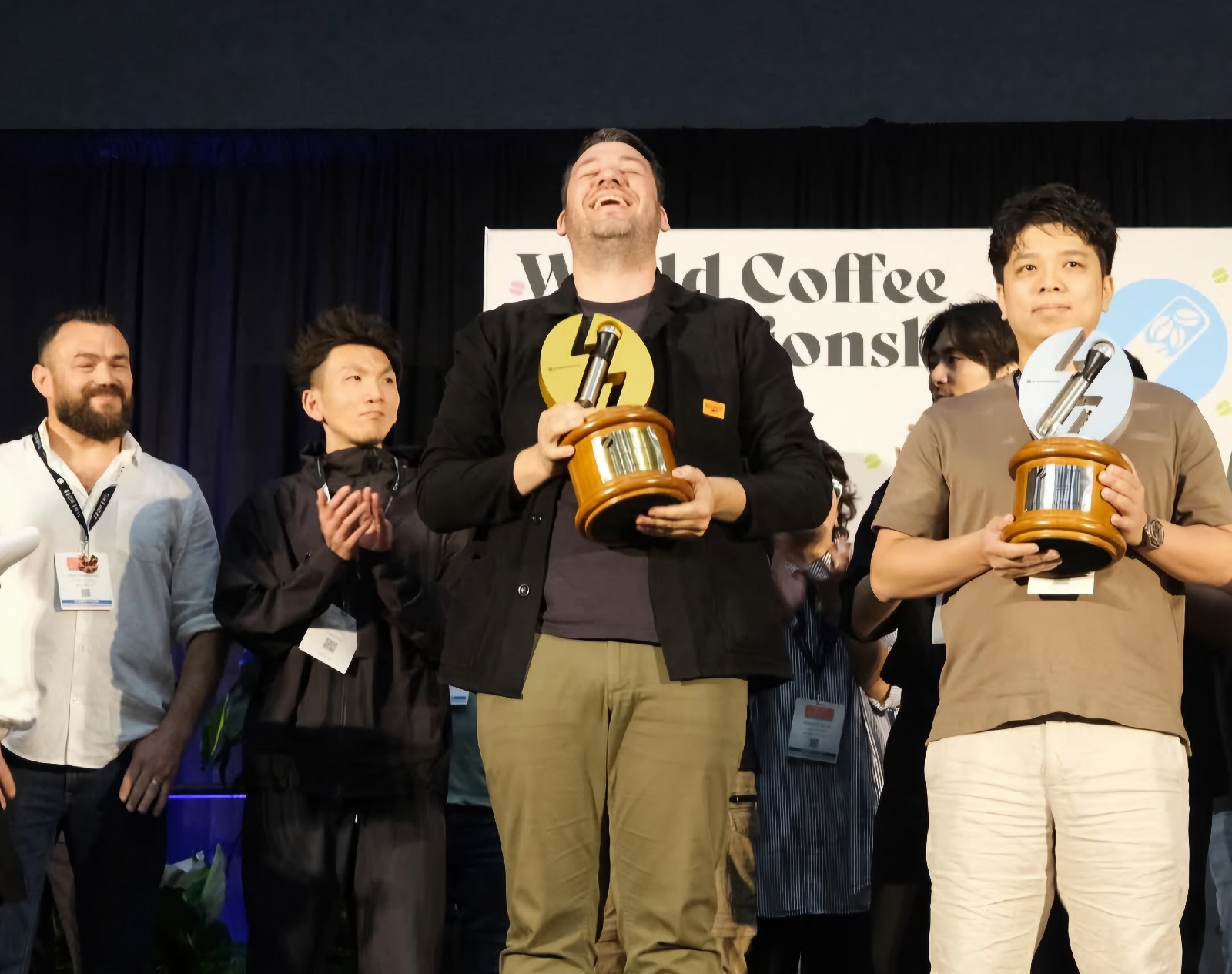Roasting Isn’t Magic — Until It Is: Mikaël Portannier’s Journey from La Rochelle to the World Stage
You don’t usually hear La Rochelle mentioned in conversations about the best coffee roasters in the world, but that’s exactly where Mikaël Portannier’s story begins. From a catering student curious about coffee to becoming France’s Meilleur Ouvrier and the 2025 World Coffee Roasting Champion, his path has been anything but predictable.
HUDES | Worldwide Digital Magazine for Manual Coffee Brewers
In this exclusive conversation with Hudes Magazine, Mikaël reflects on the turning points that shaped his craft, the mindset behind his precise approach to roasting, and how he’s using his experience to lift others through his training initiative, Texture. This is not just a story about titles. It’s about curiosity, patience, and how asking the right questions can lead to something far greater than you imagined.
 |
| MIKAËL - 2025 World Coffee Roasting Champion |
Hello Mikaël, let’s start with your journey, what first sparked your interest in coffee roasting?
I'm 30 years old and originally from La Rochelle, a small city on the Atlantic coast of France. I studied catering and hospitality, earning an advanced technician diploma, and it was during that time — around 13 years ago — that my curiosity about coffee began. In 2015, I moved to Paris and started working as a barista at Café Lomi. Just a few months later, I transitioned into the training department, where I began learning the foundations of coffee roasting. From tasting and analysis to teaching others about the craft.
In 2023 you became France’s Best Craftsman (roaster), followed by the national championship in 2024, and now crowned world champion in 2025. What impact have these titles had on you both personally and professionally?
Professionally, the world title opens new doors — most notably, it paves the way for the launch of my own roastery, PARCEL, which I’m starting with my friend Damien Buretier. We’re set to introduce it at the World of Coffee in Geneva next week, and we couldn’t be more excited.
Your path into coffee began around 2010 almost by chance, but soon became a true calling. Can you share the moment when roasting shifted from a job to a passion?
I still vividly remember the moment that changed everything for me. It was back in 2016, as I was preparing for the Coffee in Good Spirits Championship in Shanghai. I asked the head roaster at Café Lomi if he could roast a coffee that had bright acidity, floral and sweet aromas, and a deep, lingering aftertaste. In my mind, it was simple: you describe what you want, the roaster works their magic, and voilà — the perfect coffee appears.
But instead, he handed me a bag from the shelf and said, “Why don’t you try this one? I think it’ll be just right for your cocktail.” And he was right. It had everything I was looking for. That was the moment I realized good roasting isn’t about making magic on demand — it’s about understanding the bean so deeply that you already know what it holds.
At the time, I had only spent a single day behind the roaster, but I joined the team for cupping every morning as part of quality control. That’s where it all truly began for me. I started asking endless questions: Why is this roast astringent and the next one smooth? Why does one color of ground coffee taste fruitier than another? And somehow, the answers revealed themselves in every cupping bowl. That’s where the real magic happened.
You launched TEXTURE in 2023 to support and train European roasters. What inspired you to start this initiative, and what do you hope it will achieve?
I started my consulting and training work about two years ago, responding to growing requests from friends, former trainees, and roasters who wanted guidance using their own equipment and coffees. I was looking for a new direction — something that allowed me to grow both as a trainer and as a roaster — and this path opened countless doors.
It gave me the chance to work with a wide range of machines, from commercial setups to high-end specialty equipment, and to roast everything from everyday blends to rare micro-lots. I had the opportunity to meet passionate professionals, and to travel across France and Europe, learning and sharing along the way.
What’s most rewarding is seeing people take what they’ve learned, push themselves further, and improve their coffees. Over time, those individual efforts contribute to raising the overall standard of quality in France — and that, for me, is what it’s all about.
You also create bean‑to‑bar chocolate from raw cocoa. How did this unique side project begin and how does it reflect your philosophy as a coffee roaster?
This has been a truly fantastic experience. Like most people, I absolutely love chocolate — and after having some unforgettable moments tasting bean-to-bar creations, I thought, why not give it a try myself? So I gathered everything I needed to begin the process. I traveled to El Salvador with a group of chocolatiers and enthusiasts, took part in a one-day training at Belco — where I source most of my cocoa beans — and from there, I started making my own chocolate.
What drives this project is a commitment to traceability and the pursuit of a unique tasting experience in every bar. I began with just two origins; now I work with five — each one distinct and truly special. I focus solely on 80% dark chocolate, as it allows the full spectrum of aromas to come through and lets the cocoa speak for itself. The variety, the processing method, and of course the terroir all influence the final flavor profile — just like in coffee.
In Houston’s World Coffee Roasting Championship (WCRC) 2025, competitors were evaluated on green grading (not at the world stage, only nationals), roast profiling, and tasting. Can you walk us through your strategy in each round?
Coffee roasting is both a science and a highly delicate craft. While anyone can roast coffee, not everyone can roast it well. Preparing for the World Coffee Roasting Championship required intense focus and months of training to develop the right strategy using the specific equipment provided. The competition roasters — the Nucleus Link and the Stronghold S9X — each behaved differently, so I spent five months training with both to understand their nuances. The challenge was finding consistency between the profiles I developed on the Link and translating those results to the S9X.
Together with my coach, Dajo, we eventually refined two core profiles: one tailored for fruit-dried coffees (natural, anaerobic natural, etc.), and another for parchment-dried coffees (washed, honey, anaerobic washed, and so on). Each required a different approach, but both had to achieve clarity, structure, and balance in the cup.
What makes this competition unique is that you're not just roasting — you're predicting. The judges evaluate how accurately you can describe what they will taste in the final cup, in terms of both flavor descriptors and intensity. So we trained heavily using score sheets, even analyzing sheets from other national competitors to better understand what the judges were truly looking for. This is about cupping, not brewing — and if you roast too light, you’ll miss the mark.
What key skills or perspectives do you emphasize for those preparing for top competitions?
The truth is, only a handful of roasters are genuinely interested in competing. Some aren’t drawn to the pressure, others fear failure, and many simply don’t have the time to prepare at that level.
But through my consulting and training, my goal has never been to turn everyone into a world champion. What I really hope to do is spark reflection — to encourage each roaster I meet to think more deeply about their craft, and to reconnect with the passion and intention behind every batch they produce.
Keep your roaster clean. Choose quality beans. Roast them as well as you can. Control the outcome. Taste. Train others. Share your knowledge. Then do it all over again. That, to me, is what defines a great roaster.
We hear you enjoy bowling and cycling in your free time. How do these hobbies feed into your roasting mindset or help you cope with the pressures of competition?
I’ve been competing in bowling since 2007 — and it’s far more complex and strategic than most people realize. It’s nothing like the casual weekend game with a few beers and friends, I promise. There’s precision, planning, and a mental game behind every throw.
Cycling, on the other hand, started out as a practical habit — just a way to get to work or visit clients over the past decade. But it gradually became something more: a quiet escape from routine. There’s something grounding about spending a few hours on the bike, taking in the scenery, and yes, even embracing the burn in your legs.
Looking forward to the rest of 2025 and beyond — with the launch of your own roasting brand PARCEL and continued growth of TEXTURE — what are your key goals, and how do you envision your role in shaping the global coffee scene?
I’m looking forward to building a family and focusing on growing and strengthening the projects I’ve started. This championship year is a unique opportunity, and I intend to make the most of it — not just for myself, but to spotlight the evolving French coffee scene.
We’re producing exceptional coffee in France now — far beyond the outdated idea of a dark “French roast.” The scene has transformed significantly in recent years, and Paris has become a destination where you can genuinely experience some of the finest coffees in the world. (Hudes Magazine/2025)
_______
All photos by Mikaël for Hudes
















Post a Comment